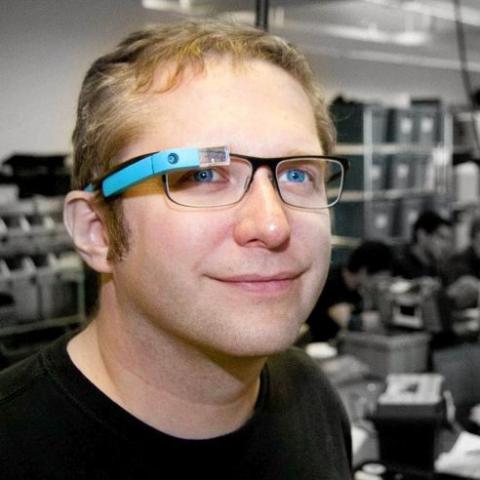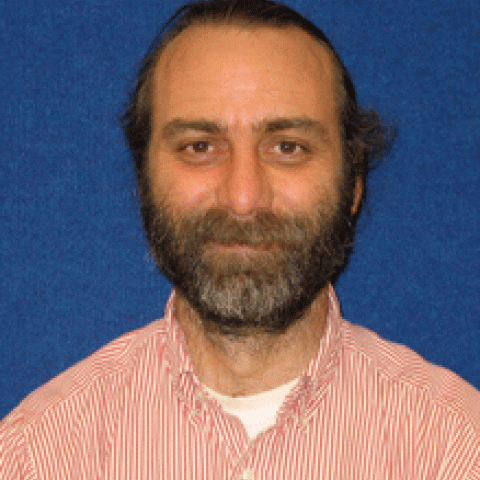Benjamin J. Thompson



Peter Swire, J.D., is Associate Director of Policy for the Institute for Information Security & Privacy. Swire has been a privacy and cyberlaw scholar, government leader, and practitioner since the rise of the Internet in the 1990's. In 2013, he became the Nancy J. and Lawrence P. Huang Professor of Law and Ethics at the Georgia institute of Technology. Swire teaches in the Scheller College of Business, with appointments by courtesy with the College of Computing and School of Public Policy. He is senior counsel with the law firm of Alston & Bird LLP. Swire served as one of five members of President Obama's Review Group on Intelligence and Communications Technology. Prior to that, he was co-chair of the global Do Not Track process for the World Wide Web Consortium. He is a senior fellow with the Future of Privacy Forum, and a policy fellow with the Center for Democracy and Technology. Under President Clinton, Swire was the chief counselor for privacy in the U.S. Office of Management and Budget -- the only person to date to have U.S. government-wide responsibility for privacy policy. In that role, his activities included being White House coordinator for the HIPAA medical privacy rule, chairing a White House task force on how to update wiretap laws for the Internet age, and helping negotiate the U.S.-E.U. Safe Harbor agreement for trans-border data flows.Under President Obama, he was special assistant to the President for economic policy. Swire is author of five books and numerous scholarly papers. He has testified often before the Congress, and been quoted regularly in the press. He has served on privacy and security advisory boards for companies including Google, IBM, Intel, and Microsoft, as well as a number of start-ups. Swire graduated from Princeton University, summa cum laude, and the Yale Law School, where he was an editor of the Yale Law Journal.


Anne Sullivan is an Assistant Professor in Digital Media and head of the StoryCraft Lab at Georgia Tech.
She received her PhD in Computer Science from University of California, Santa Cruz, where she created an artificial intelligence framework to support playable stories - stories that adapted and changed based on player choice. Before returning to school for her PhD, she was a game developer and designer with experience at AAA studios and as an independent developer.
Her research focuses on playful and storied interactive experiences from a feminist and humanistic perspective, with an emphasis on human-centered artificial intelligence (AI). To that end, Dr. Sullivan has established herself in the fields of critical game analysis through her work in feminist analysis of games, and co-creative AI through her work in educational interactive experiences and AI-assisted tools for craft and narratives. She also studies craft as an analog counterpart to playful and storied interactive experiences, researching in the exciting and emerging field of computational craft.
Dr. Sullivan is an award-winning quilter and the concept designer and producer of Loominary – a digital game system controlled with a loom - which has been shown internationally, including at the SAAM Arcade exhibit at the Smithsonian American Art Museum.
Education:
Areas of
Expertise:


Richard Starr is a research scientist responsible for the Protected Health Data infrastructure at IPaT. He develops and manages a common infrastructure to work with healthcare data. This secure environment can be employed across campus to house research data to maintain compliance with HIPAA, IRB, and partnership agreements.

Thad Starner is a Professor at the Georgia Institute of Technology's School of Interactive Computing. Thad was perhaps the first to integrate a wearable computer into his everyday life as an intelligent personal assistant. Starner's work as a Ph.D. student would help found the field of Wearable Computing. His group's prototypes and patents on mobile MP3 players, mobile instant messaging and e-mail, gesture-based interfaces, and mobile context-based search foreshadowed now commonplace devices and services. Thad has authored over 100 scientific publications with over 100 co-authors on mobile Human Computer Interaction (HCI), pattern discovery, human power generation for mobile devices, and gesture recognition, and he is a founder and current co-chair of the IEEE Technical Committee on Wearable Information Systems. His work is discussed in public forums such as CNN, NPR, the BBC, CBS's 60 Minutes, The New York Times, Nikkei Science, The London Independent, The Bangkok Post, and The Wall Street Journal.
Wearable Computing; Artificial Intelligence; Augmented Reality; Human Computer Interaction; Ubiquitous Computing

Stephen Sprigle is a Professor at the Georgia Institute of Technology with appointments in Bioengineering, Industrial Design and the George W. Woodruff School of Mechanical Engineering.
A biomedical engineer with a license in physical therapy, Sprigle directs the Rehabilitation Engineering and Applied Research Lab (REARLab), which focuses on applied disability research and development. The REARLab’s research interests include the biomechanics of wheelchair seating and posture, pressure ulcer prevention, and manual wheelchair propulsion. Its development activities include standardized wheelchair and cushion testing and the design of assistive and diagnostic technologies. Sprigle teaches design-related classes in both the Schools of Industrial Design and Mechanical Engineering.

Dr. Sitterle is a Principal Research Engineer at the Georgia Tech Research Institute (GTRI), where her technical work synthesizes systems science, complex systems, and defense analysis. She is an expert with over 20 years of experience in engineering science, integrating engineering, natural, and physical sciences leading to the design and analysis of systems. Her primary areas of focus are identifying driving influences in support of materiel development under uncertainty, and integrating defense operational needs with systems sciences across multiple domains to supports design and assessment of defense systems and operational and tactical concepts of employment in theater environments. Dr. Sitterle also serves as the Chief Scientist for the Systems Engineering Research Division within the Electronic Systems Laboratory in GTRI. In this role, she supports the definition and execution of R&D across the main pillars of model-based approaches, human systems, and digital transformation of systems engineering to provide new capabilities and advance stakeholders’ decision-making processes. She also serves as a current member of the Research Council for the Systems Engineering Research Center (SERC), a DoD UARC led by Stevens Institute of Technology.
